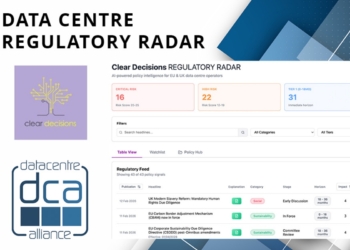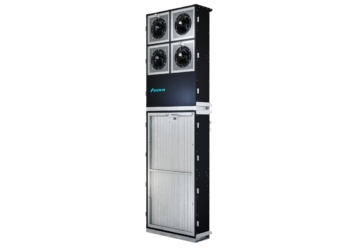Powering the growth of modular data centres
Author: Simon Rowley

By Andrew Skelton, Sales Manager, Centiel.
The data centre industry is experiencing unprecedented growth, driven by the exponential increase in digital demand, from cloud computing and IoT devices to AI and big data. This surge has led to mounting pressure on infrastructure providers to deliver capacity faster, more efficiently, and in increasingly constrained environments.
Several factors are fuelling this rapid transformation. Urban areas are running out of space, planning permission for new builds can be time-consuming and complex, and the pace at which businesses require digital services has never been faster. In response to these challenges, modular data centres are emerging as a powerful solution.
Unlike traditional brick-and-mortar facilities, modular data centres are pre-engineered, prefabricated units – often based on 20 or 40-foot ISO shipping containers or custom-built enclosures. These compact, self-contained modules can be deployed indoors or outdoors, stacked vertically, or added in phases to scale infrastructure quickly. Their flexibility and portability also make them particularly well-suited for edge computing, where latency-sensitive applications require infrastructure closer to end users.
One major advantage of modular data centres is the speed of deployment. Because they are classified as temporary or mobile structures in many regions, they can often bypass the full planning and approval processes required for permanent facilities. This allows organisations to get operational faster – sometimes within weeks – unlocking significant business value.
However, one of the key technical considerations in modular deployments is power. Delivering reliable, continuous energy within the constraints of a small, high-density footprint is a significant challenge. That’s where modern, ultra-compact, uninterruptible power supply (UPS) systems come into play.
Space is a precious commodity in modular environments. Traditional UPS systems are often too bulky to fit the physical and functional needs of these compact builds. As a result, there’s a growing demand for UPS solutions that deliver maximum power density in the smallest possible space, while also ensuring high energy efficiency and resilience.
Centiel has specifically engineered its StratusPower UPS to meet these challenges. The company’s multiple award-winning, three-phase, modular UPS is available with an ultra-compact frame that maximises vertical space, significantly reducing the floor area required. With an impressive power density of up to 1059kW/m², StratusPower is among the most space-efficient UPS systems available on the market today.
StratusPower supports a scalable capacity range from 50kW to 1.8MW per cabinet and can be paralleled to deliver up to 5.4MW of clean, uninterrupted power. With a class-leading VFI (Voltage and Frequency Independent) operating efficiency of 97.6%, the system not only ensures power reliability but also helps reduce operating costs and improve overall sustainability – key factors in modern data centre design.
As the industry continues to embrace modular and containerised infrastructure, compact, high-performance UPS systems will play an increasingly central role. Centiel’s StratusPower provides the flexibility, scalability, and reliability needed to power the next generation of digital infrastructure ensuring that modular growth doesn’t come at the cost of performance or efficiency.
For more from Centiel, click here.








